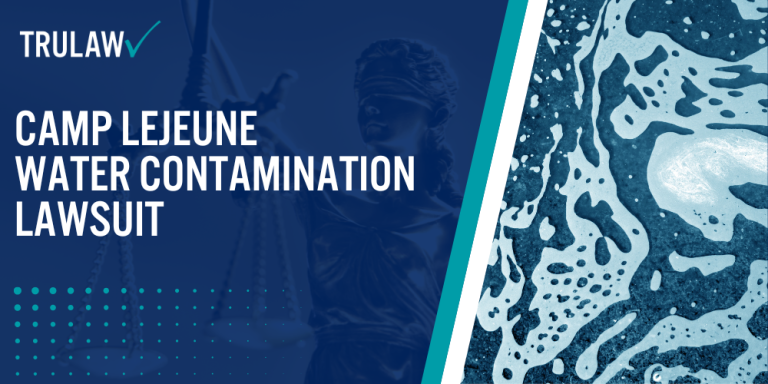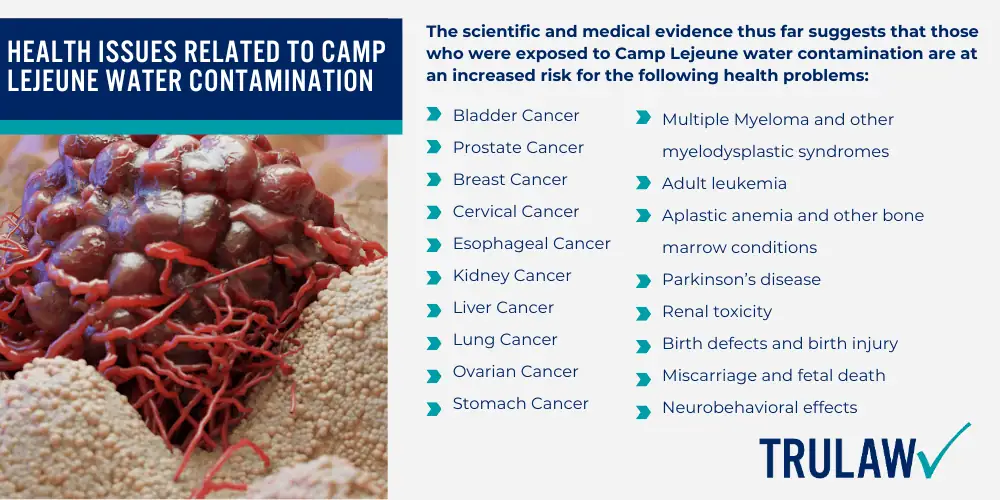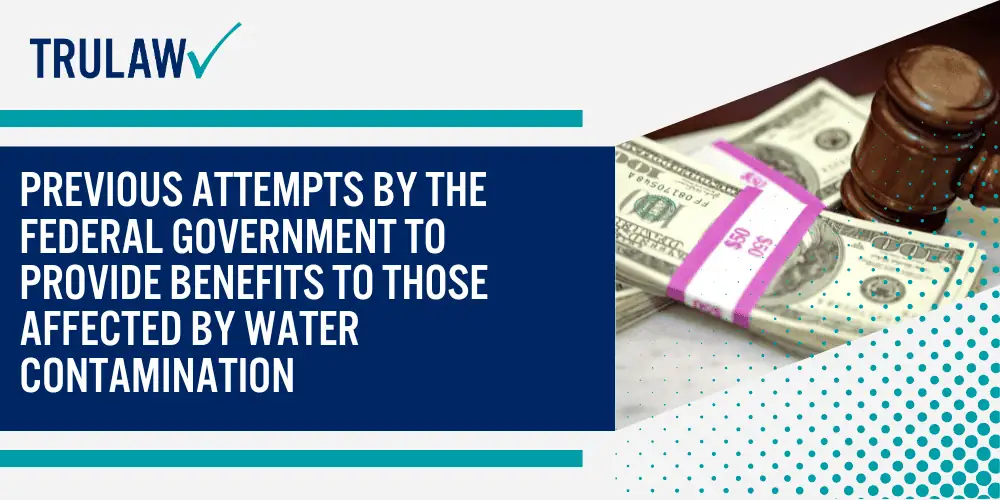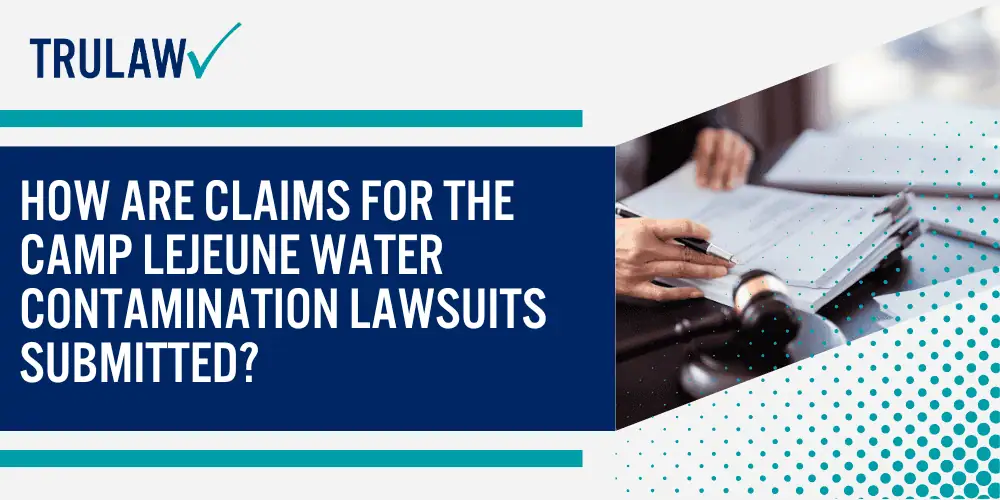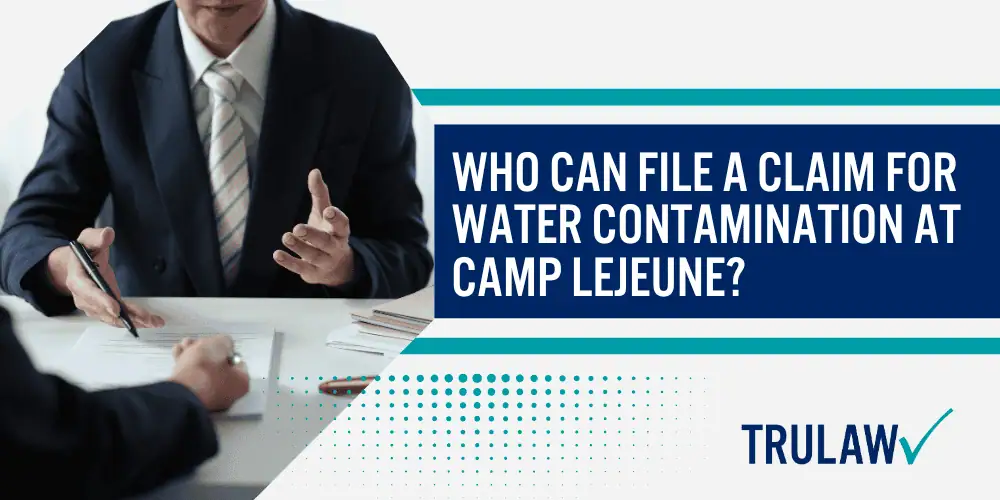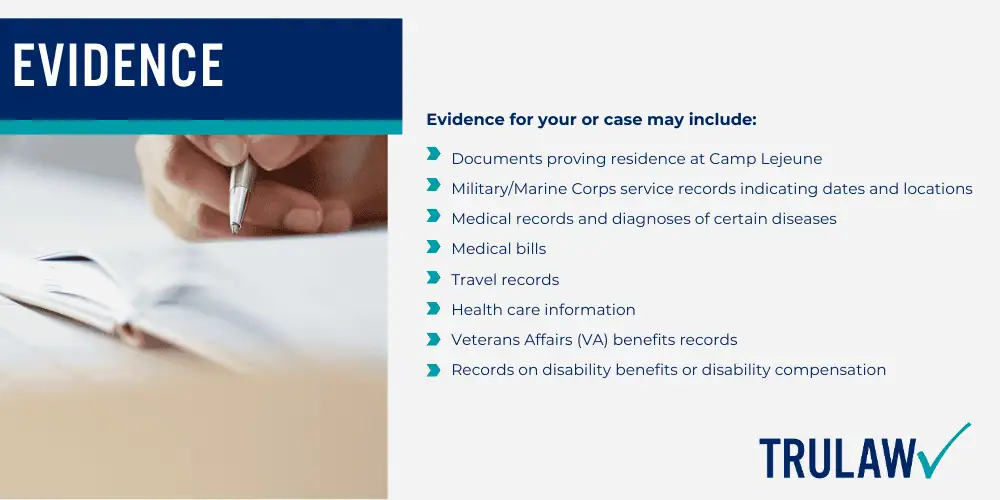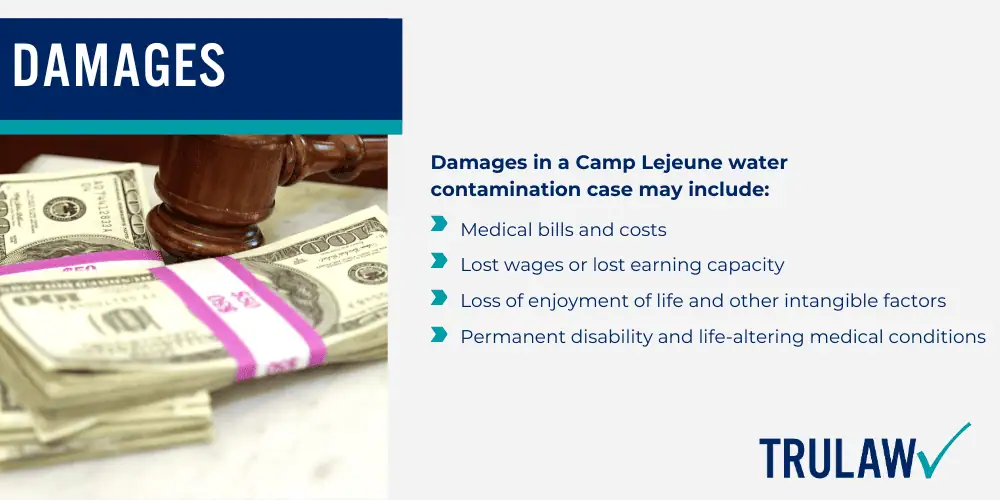For years, the residents of Camp Lejeune drank, cooked with, and bathed in water that was contaminated with a host of dangerous chemicals.
The water used by residents and families living on the base was contaminated with volatile organic compounds (VOCs), which have been linked to a number of serious health conditions.
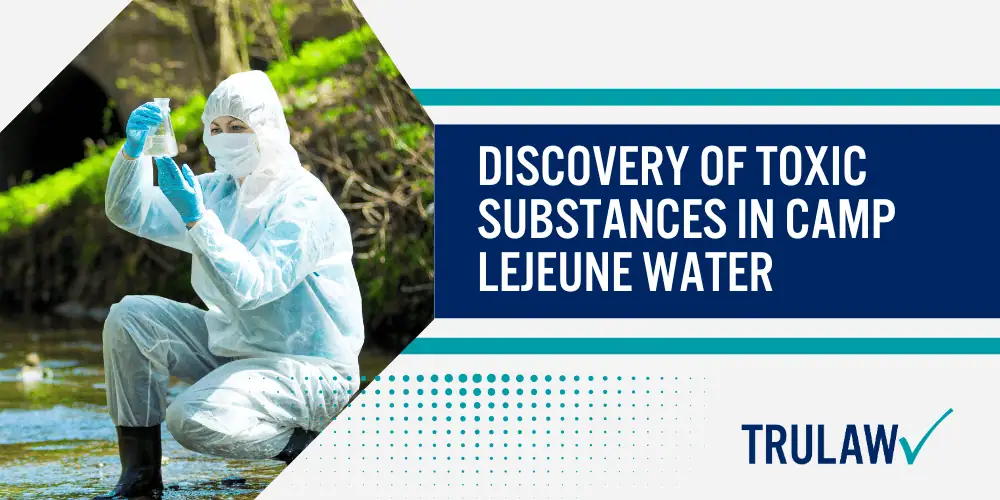
The sources of the contamination are varied, but one the most likely culprit is a dry cleaning facility that operated on the base for many years.
Since the facility closed, the levels of VOCs in drinking water have decreased dramatically.
However, the damage has already been done, and the residents of Camp Lejeune are now facing a range of health problems.
Agency for Toxic Substances and Disease Registry (ATSDR) Studies of Camp Lejeune Water Contamination
The presence of VOCs and other toxic chemicals in the contaminated drinking water at Camp Lejeune was first discovered in 1982.
Since then, the Agency for Toxic Substances and Disease Registry (ATSDR) has been investigating the potential health effects of exposure to the water.
The ATSDR has found scientific and medical evidence that the chemicals can cause a number of serious health problems, including many types of cancer.
The health effects of exposure to the contaminated water are especially serious for infants and children, who are more susceptible to the toxic effects of the chemicals.
It is incredibly important for people who were exposed to the contaminated water at Camp Lejeune to be aware of the potential health risks.
Chemicals Found in Water Sources at Camp Lejeune
A variety of volatile organic compounds (VOCs) and other dangerous chemicals were found in drinking water that supplied base housing and buildings at the Marine Corps Base Camp Lejeune and Marine Corps Air Station (MCAS) New River.
MCAS New River is located just minutes away from Camp Lejeune.
The potential sources of these chemicals include the aforementioned off-base dry cleaner, military disposal of industrial chemicals, and more throughout 30+ years of recorded contamination.
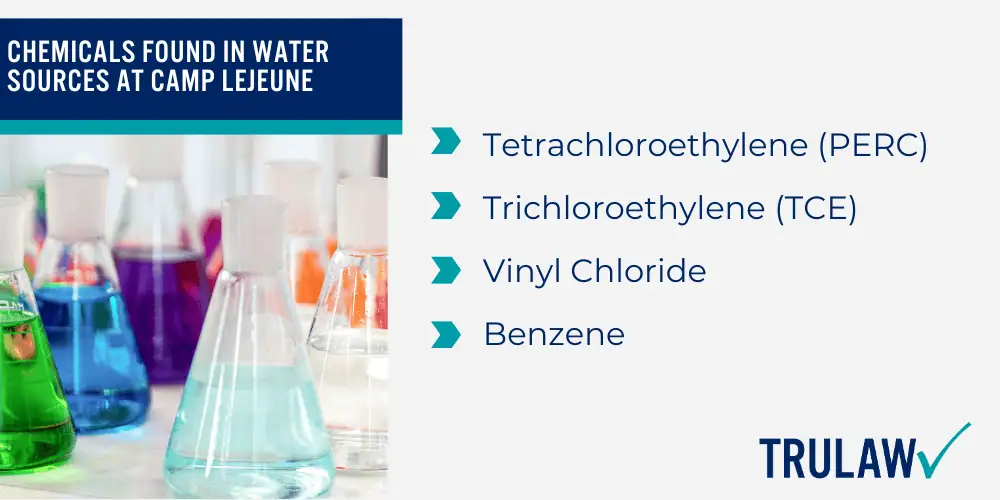
Tetrachloroethylene (PERC)
Tetrachloroethylene, also known as perchloroethylene, PCE or PERC, is a powerful industrial solvent.
It’s used in a variety of applications, including dry-cleaning fabrics, degreasing metal machinery, and manufacturing other chemicals.
PERC is also a common ingredient in paint strippers, spot cleaners, and adhesives.

Although it’s an effective cleaner, PERC poses a serious health risk to humans.
Exposure to high levels of PERC can lead to bladder cancer, liver cancer, and kidney cancer.
In addition, PERC exposure has been linked to birth defects and other pediatric health risks.
PERC contamination at Camp Lejeune can be traced to Tarawa Terrace Treatment Plant and Hadnot Point Treatment Plant.
Trichloroethylene (TCE)
Trichloroethylene, or TCE, is a chemical solvent commonly used as a degreaser for metal machinery.
TCE can be incredibly dangerous to human health.

When ingested, inhaled, or absorbed through the skin, TCE can potentially lead to kidney cancer, non-hodgkin lymphoma, and other cancers.
In addition, exposure to TCE has been linked to cardiac effects such as arrhythmias and heart failure.
TCE at Camp Lejeune can be traced to Hadnot Point Treatment Plant.
Vinyl Chloride
Vinyl chloride is a synthetic compound used in the production of many consumer products, from food containers and water pipes to cosmetics and cleaning products.
Despite its widespread use, vinyl chloride has been linked to a range of serious health problems, including liver cancer, hepatic steatosis, brain cancer, and other cancers, as well as certain neurobehavioral effects.
Studies have also found that exposure to vinyl chloride can damage the nervous system, cause birth defects, and lead to fertility problems.
Benzene
Benzene is a colorless, flammable liquid with a sweet smell.
It is used as a solvent in the chemical industry and is present in crude oil, gasoline, and cigarette smoke.
Benzene is classified as a human carcinogen, and exposure to high levels of benzene can cause leukemia and other blood cancers.
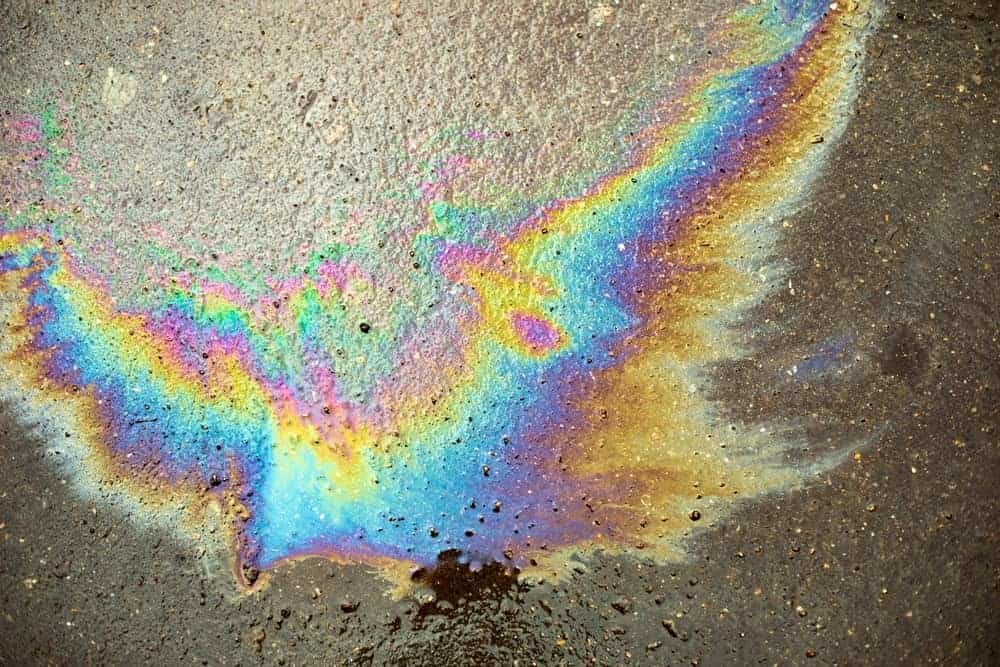
The ATSDR has conducted an assessment of the health effects of benzene, and their findings indicate that consuming water contaminated with the chemical has been linked to leukemias, non-hodgkin lymphoma and multiple myeloma.
These findings are concerning, and further research is needed to better understand the health risks associated with Benzene exposure.
